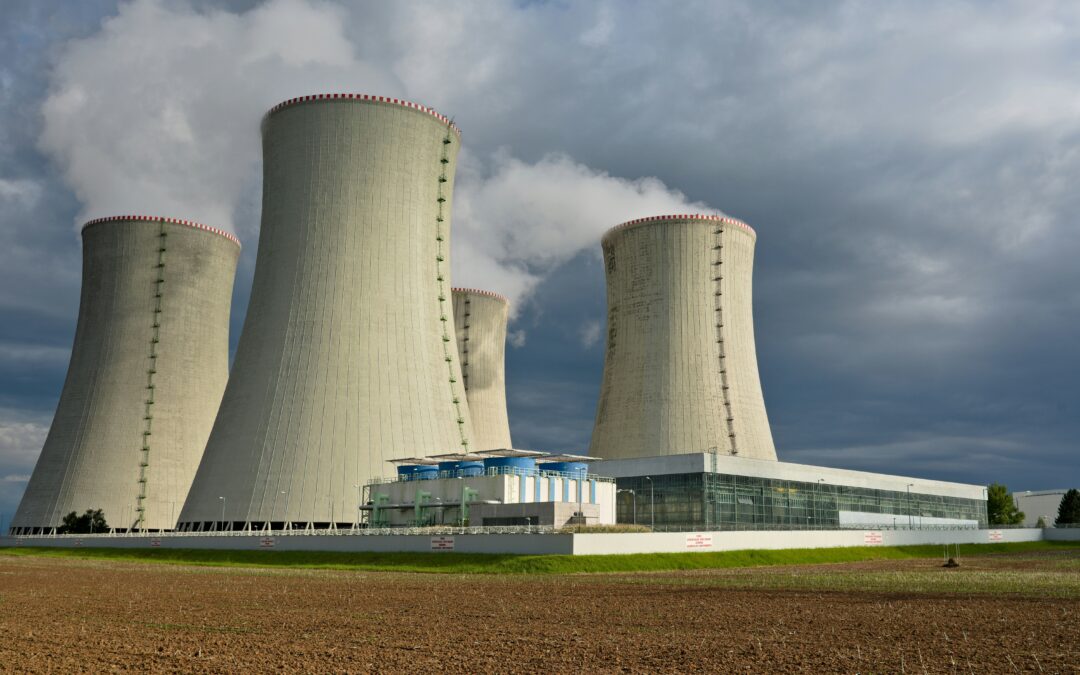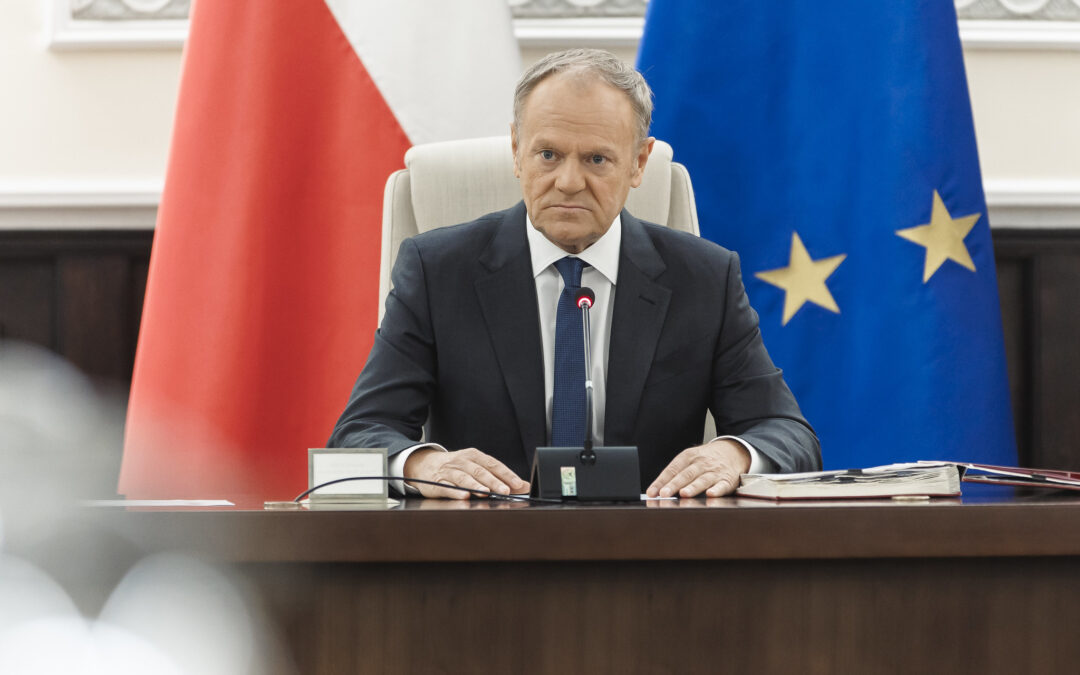Keep our news free from ads and paywalls by making a donation to support our work!

Notes from Poland is run by a small editorial team and is published by an independent, non-profit foundation that is funded through donations from our readers. We cannot do what we do without your support.
Korea Hydro & Nuclear Power (KHNP), a state-run South Korean energy company, is withdrawing from a nuclear power project in Poland, the Yonhap news agency has reported.
KHNP President Whang Joo-ho told South Korean lawmakers this week that the decision was driven by changes in Warsaw’s energy policy under its new government, a claim that Poland’s energy ministry dismissed as untrue.
The move follows a settlement earlier this year between KHNP, Korea Electric Power Corporation (KEPCO) and US-based Westinghouse – which will build Poland’s first nuclear power plant – over an intellectual property dispute.
Decyzja koreańskiej spółki KHNP nie wynika z żadnych działań rządu i dotyczy kilku krajów europejskich.
Ministerstwo w zeszłym miesiącu wystosowało oficjalne zaproszenie dla strony koreańskiej do udziału w postępowaniu konkurencyjnym dla drugiej elektrowni i czekamy na…
— Miłosz Motyka (@motykamilosz) August 20, 2025
“After the new Polish administration took office…the country decided to drop the state-owned enterprise projects (in the nuclear power sector)…and that is why we withdrew our business there,” Whang said, quoted by Yonhap.
KHNP had planned, together with Polish state energy giant PGE and private firm ZE PAK, to build two nuclear reactors in Konin-Pątnów, central Poland. The facility was to have a capacity of 2.8 GW.
Poland’s energy minister, Miłosz Motyka, dismissed claims that the Polish government had abandoned the project as untrue. “The government has not made any decisions to ‘suspend’ the project, as all decisions are made by the investor, which is half privately owned,” he said on X.
“Last month, the ministry issued an official invitation to the Korean side to participate in a competitive bidding process for the second power plant, and we are awaiting an official statement on this matter,” Motyka added.
According to Pulse, an English-language news website run by Korean daily Maeil Business Newspaper, KHNP handed over leadership of its European nuclear projects to Westinghouse following an intellectual property dispute with the American company.
While details of the settlement have not been disclosed, KHNP has also withdrawn from nuclear tenders in Sweden, Slovenia and the Netherlands since signing the agreement with Westinghouse in January 2025.
It reportedly bars KHNP from bidding for nuclear projects in most EU countries, North America, the UK, Japan and Ukraine, restricting it to remaining markets in Asia, the Middle East, South America and Turkey.
Pulse reports that industry experts consider the terms disadvantageous, though Whang defended the deal during an audit in the National Assembly, South Korea’s parliament.
Poland has signed an agreement with South Korea to develop a nuclear power plant.
"We need cheap and stable sources of energy," says Poland's deputy PM. "Nuclear is indispensable in Polish conditions, especially in the current geopolitical situation" https://t.co/iY8dYdn4Of
— Notes from Poland 🇵🇱 (@notesfrompoland) November 1, 2022
The withdrawal of the Korean company prompted criticism from Poland’s former ruling Law and Justice party (PiS), which blamed the Donald Tusk-led ruling coalition rather than KHNP.
“This is what Tusk’s ‘energy policy’ looks like: capitulation to the expectations of Germany, which does not want nuclear energy in Poland,” said PiS MP Jacek Sasin, who served as state assets minister under the previous government and was among the officials to sign the deal with KHNP, PGE and ZE PAK.
Another PiS MP and former deputy foreign minister, Szymon Szynkowski vel Sęk, described the move as an example of the “crumbling of the state”.
Koreańczycy potwierdzają: to decyzja rządu Tuska o porzuceniu projektów jądrowych z udziałem polskich spółek państwowych wyrzuciła KHNP z Polski, co pogrzebało szansę na budowę nowoczesnej elektrowni jądrowej bez wydania ani złotówki z budżetu państwa.
Tak wygląda „polityka… pic.twitter.com/W3JUJ4bCOf
— Jacek Sasin (@SasinJacek) August 20, 2025
Poland’s first planned nuclear plant in Choczewo is being developed with a consortium of the US companies Westinghouse and Bechtel. The plant has a planned electricity generation capacity of up to 3.75 GW.
A second nuclear plant is also planned, with two potential sites, Konin and Bełchatów – the latter home to Europe’s largest coal-fired power plant and the EU’s largest carbon emitter.
In March, the industry ministry reaffirmed the government’s commitment to the second project, stating that its plans are expected to be finalised by 2027.
The plant is scheduled to become operational in 2040. The total combined capacity of the two plants will be between 6 and 9 GW.
A bill providing 60bn zloty (€14.4bn) in financing for Poland’s first nuclear power plant, which is being developed with US firm Westinghouse, has been signed into law
Warsaw is still awaiting EU approval for the state aid it wants to give to the project https://t.co/DAd8X5UITA
— Notes from Poland 🇵🇱 (@notesfrompoland) March 26, 2025

Notes from Poland is run by a small editorial team and published by an independent, non-profit foundation that is funded through donations from our readers. We cannot do what we do without your support.
Main image credit: Lukáš Lehotský/Unsplash

Alicja Ptak is deputy editor-in-chief of Notes from Poland and a multimedia journalist. She has written for Clean Energy Wire and The Times, and she hosts her own podcast, The Warsaw Wire, on Poland’s economy and energy sector. She previously worked for Reuters.



















